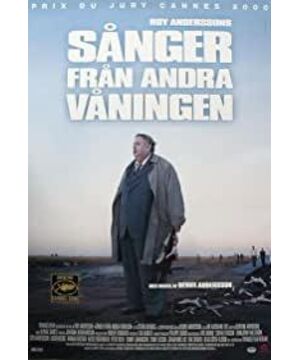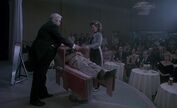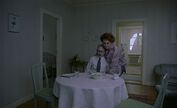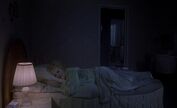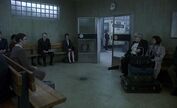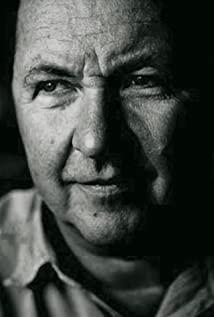But compared to "You Are Alive", I like this one more. The director adds more emotion to the expression of this absurd world than just looking at it from a distance. The connection between the characters and the plot is also closer. Although I still can’t tell who is who because of my blind face and the large number of characters, I can still see a clear clue in the scattered plot. Kahler’s eldest son, who burned the shop and wanted to defraud the premiums, went crazy because he wrote poems. The younger son kept repeating his brother’s poem "The one who sits is cute". Kahler felt that he was in a miserable situation and went to church to confide in him. I went to the merchant and bought some crucified Jesus images to sell. I wanted to get more zeros in my bank account, and I had borrowed money, and now my deceased relatives and a Russian who was killed because of racial discrimination. Having been pestering him, the image of Jesus couldn't be sold and was thrown into the garbage. There are many other plots interspersed in this clue. The magician cuts open the belly of the audience who took part in the performance. The officers pretended to celebrate his 100th birthday to the general trapped in a cage-like bed. Countless people Pulling heavy luggage and want to escape here to reach freedom, but was overwhelmed by the luggage. All these logical absurdities let us see the stupidity of this world step by step, and we are desperate.
The documentary reproduces a lot of the filmmaking process. The director puts a lot of effort into the setting. The film should basically be shot in the studio. Many distant scenes have used visual aberrations to set the scene (so the whole story has a fixed lens?). The characters are not "beautiful" either, just like you, me, and all living beings. The actor's makeup is also obvious, and the faces, including the extras, are painted pale, just as weird as the film itself.
This is a film that can trigger thinking, let me think more about it.
View more about Songs from the Second Floor reviews


